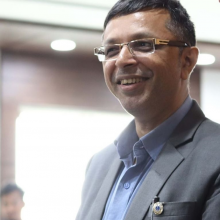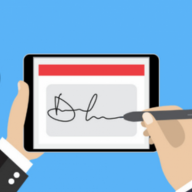4 mindfulness practices to improve your focus and awareness in work & life

Learning & Development
276 week ago — 8 min read
Consider this scenario: At the start of your work day (say 9 AM), you update your to-do list with everything you need to get done that day. At 6 PM, you’re reviewing your to-do list and checking items off. You realise that in the entire day, you could only tackle about 50% of your planned tasks. The remaining time was taken up by unplanned meetings and phone calls and unexpected yet ‘urgent’ tasks. You’re annoyed with yourself but are not sure what you can do to make the next day better.
Does this happen to you?
Do you find that you’re busy all the time and yet not quite as productive as you hope to be?
At the end of each day, do you always wonder, “Where did my time go?”
You are not alone!
We’re all living in what is now known as the ‘attention economy’. In the attention economy, we’re all forced to deal with a growing flood of information in order to do our work, to coordinate with others and even to make wise decisions. In the past, it was enough to have good technical or management skills in order to do well at work. But those days are long since gone. Now, the ability to pay attention, to maintain focus and to concentrate for extended periods of time are equally important skills.
So how can we develop these skills? How can we be more productive, even in the attention economy?
The answer to both questions lies in one word: Mindfulness.
Mindfulness can help us focus better on our work so we can perform it with concentration and without going on ‘auto-pilot'. And the good news is – mindfulness is a skill that can be developed through practice.
Here are 4 strategies to help you practise mindfulness and improve your focus and awareness – in work as well as in life.
1. At the start of the day
Would you believe us if we said that your body releases the most stress hormones immediately after waking? It’s true! As soon as we wake up, we tend to start thinking of the day ahead:
- What do I need to do?
- Who do I need to meet?
- Where do I need to go?
Researchers have found that this habit of ‘thinking ahead’ triggers our ‘fight-or-flight’ instinct and releases cortisol into our blood. This increases our stress levels and affects our productivity during the day. And the less productive we are, the more stressed we feel. Ultimately, this vicious cycle becomes very difficult to break.
So instead of trying to reduce our stress levels, why not do something to stop the cycle from forming in the first place? The best way to do this is to start your day right.
As soon as you wake up, make a conscious decision not to reach for your phone. Then, try this routine:
- Lie quietly in bed and observe your breaths. Keep your eyes open if closing them makes you feel drowsy
- If thoughts about the coming day pop into your mind, let them go without engaging with them, and return to your breath
- Silently count to 50 at each exhalation
- When you’re done, stretch, smile, get up and start your day
2. At the start of the work day
It’s important to take some time to yourself before you start working. This means no checking emails or logging onto the company’s Intranet! This ‘me-time’ will enable you to condition your mind and prepare for the challenges of the coming day.
As soon as get to the office (and desk), try this routine:
- Sit upright in your chair, close your eyes and relax
- Breathe deeply; focus on your breath and only on your breath
- Any time your mind gets distracted, return your focus to your breath
- Silently count to 50 at each exhalation
- When you’re done, open your eyes, wish yourself well (it works!) and start your day
Use this practice as a way to relax and focus your mind. More importantly, allow yourself to enjoy this quiet time before you’re bombarded with multiple demands on your schedule.
Also read: 6 tips to practice mindfulness at the workplace
3. During the work day
Multi-tasking is the enemy of focused concentration! The more tasks you try to do together, the less you can concentrate on them and the more mistakes you end up making. Worse, the time it takes your brain to switch between tasks means you actually take longer to complete these tasks. In short, ‘multi-tasking to improve productivity’ is nothing but an illusion.
To improve mindfulness at work, try this practice:
- Assign priorities to all the tasks on your to-do list for the day
- Start with the most high-priority task but before you do, turn off all distractions: close your email client, put your phone on silent and turn off auto-notifications
- If you find yourself getting distracted, gently bring your mind back to your task
When you work mindfully, you are able to apply awareness to everything you do. And when you’re aware, you can focus on the task at hand without getting distracted. This helps you complete tasks faster, with fewer mistakes and with greater creativity.
If you find your mind wandering during the day, take a few minutes to practice mindfulness. Breathe deeply and focus on the upcoming task. If you feel distracted, gently bring your mind back to the original task. You can do this for any kind of task, even meetings. As the day progresses and your brain starts to tire, mindfulness can help you stay sharp and focused. It will also will keep you from lapsing into autopilot mode.
Also read: Harness the power of mindfulness to eliminate stress at work
4. At the end of the work day
You can apply mindfulness even after the day ends and you start your commute home.
Turn off your phone, shut off the radio and make a conscious decision to simply ‘be’. Avoid thinking about the work day you just had or the personal time ahead of you. Simply concentrate on your breath. This will allow you to let go of the stresses of the day so you can return home and be fully present with your loved ones.
At the end of the day, go back to Mindfulness Practice #1.
A final word..
Life is too precious to live it on auto-pilot. And mindfulness is a great way to break our tendency to lapse into ‘action addiction’ and be more fully present. Mindfulness enhances our focus and awareness, not only in work, but also in life. Try these 4 mindfulness practices and let us know how they work out for you!
Did you like this post? Would you like create such powerful content for your brand? We can help! From websites and blogs to newsletters and social media – we can create content to grow your brand’s presence and establish your thought leadership in your industry! Contact us today!
Also read: Declutter your business the Marie Kondo way
Image source: shutterstock.com
To explore business opportunities, link with me by clicking on the 'Invite' button on my eBiz Card.
Disclaimer: The views and opinions expressed in this article are those of the author and do not necessarily reflect the views, official policy or position of GlobalLinker.
Posted by
Lion Amir ViraniTech Evangelist| Thought Leader | Social Entrepreneur | Enthusiastic Networker | Speaker| Startup Mentor
Network with SMEs mentioned in this article
View Lion Amir 's profile
Most read this week













Comments (2)
Share this content
Please login or Register to join the discussion